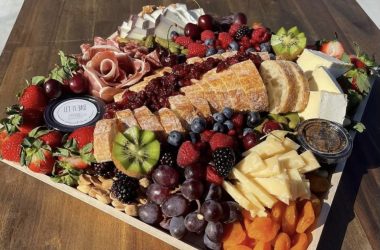Balancing polyphasic nap-cycles and deciphering chicken scratch notes is an art that many have attempted, but few have mastered.
While there is no single path that leads to academic success in college, some California State University, Long Beach students have figured out the niche that has worked for them.
“For me it’s all about focusing on one project and taking things one step at a time,” Jessica Lem, a junior supply chain management major at California State University, Long Beach said.
As time winds down during finals week and assignments start to pile up, the first instinct may be to take on a bit of everything, but Lem said that that can be detrimental.
“I like to visualize my goal and see the complete task in front of me before I move onto the next thing,” Lem said. “There’s nothing worse than feeling overwhelmed when you have a full plate ahead of you.”
Her mindset is simple: to see the grade is to get the grade.
Visualizing a goal can enhance motivation, increase confidence and self-efficacy and improve states of flow, according to Psychology Today. Thoughts produce the same mental instructions as actions; so thinking positive can prime the brain for success.
Lem has garnered a multitude of awards and recognitions including a scholarship for the Student Center for Professional Development Award, the Phi Beta Kappa Scholarly Achievement Award and is part of the Beta Gamma Sigma National Honor Society for Business Administration.
For junior human resource management major Heba Elalami, the worn edges and wrinkled pages of her planner, marked with highlighter and colored pens, signify a well-planned out and well-executed semester.
“I write down everything,” the 4.0 GPA student said. “I look at my syllabus at the beginning of the semester and I write down all of the test and midterm dates for all of my classes. I would say it’s one of the most beneficial things I’ve done.”
Elalami’s parents are both immigrants from Palestine who stressed the importance of academics to her early on. Through trial and error, she learned that planning ahead in the semester would save her from a multitude of stress and headache.
“[My parents] always had high expectations so I think that it helped in the sense that I was kind of forced into creating good study habits for myself,” Elalami, who is on the CSULB President’s List as well as the Beta Gamma Sigma honors society, said. “I definitely wasn’t born with it.”
Elalami’s time is divided between school, her family, her business fraternity and her internship. Her extracurricular life fills the pages as well, juxtaposed to simply relaying syllabi. She said that it can be a bit of an obsessive compulsive disorder.
“I actually write down what I do every hour of the day,” Elalami said. “Everything from when I eat, to when I walk my dog goes into that planner. It really helps when I have no time during finals.”
Ownership of learning and education, which includes motivation and engagement, goal orientation and self-direction, self-efficacy and self-confidence and perseverance, are skills that define the line between “overachievers” from “underachievers” according to a study by David T. Conley at the University of Oregon.
Lem credits her zen mindset for her success in school.
“I try not to let test anxiety get to me,” Lem said. “If you worry too much about failing a test, you probably will.”
Studies by Jerrell Cassady, an educational psychology professor at Ball State University, show that high levels of test anxiety negatively correlated with IQ, aptitude, academic achievement, problem solving and memory in students. The cognitive interference model suggests that their inability to suppress competing thoughts about an exam is what correlates to ineffective study habits and underachievement.
Outside of impromptu yoga and winding down with a cup of tea in the evening, Lem said that she focuses on trying her best instead of allowing stress to sap the vigor from her brain.
“Having that energy helps me stay focused and alert,” Lem said. “I’m not falling asleep in class or distracted by my phone when I’m studying.”
Junior psychology major at CSULB, Audrey Chang, opts for more bizarre study techniques.
“There’s a lot of memorizing in psychology,” the Psi Chi National Honors Society member said. “So my friend and I come up with weird ways to relate our vocabulary with names and faces.”
Chang remembers the term “serotonin,” which is a neurotransmitter that antidepressant and anti-anxiety medications are commonly prescribed for, in association with her childhood friend named Sarah who was often the depressing, “Negative Nancy” of the group.
Aside from that, Chang said that rewriting and annotating her notes immediately after class aids the long-term memory process, making it easier to study and retrieve that data from her mind later on.
“Everyone’s different,” Elalami said. “So saying that one study method works for everyone totally contradicts our individuality.”



